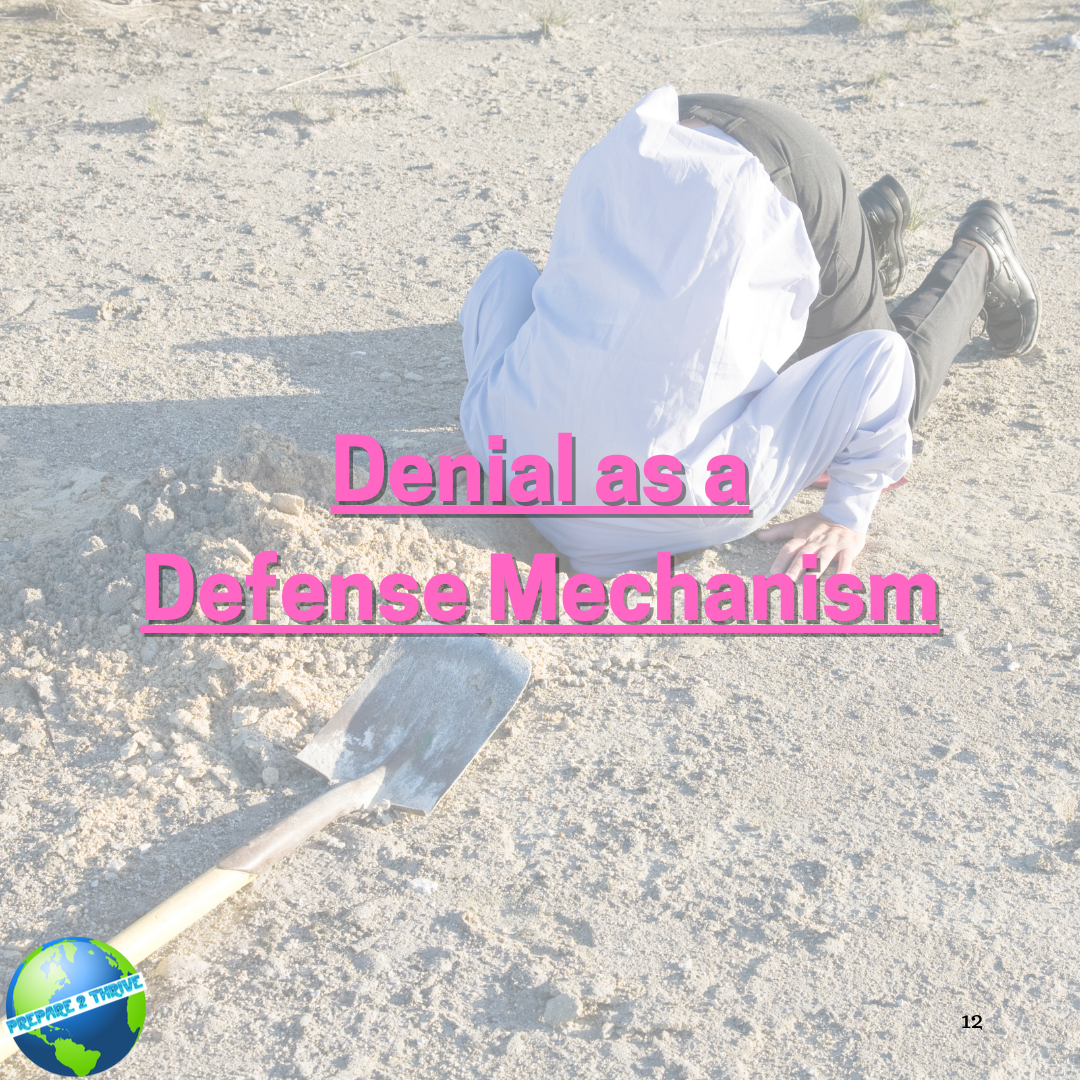Denial is a type of defense mechanism that involves ignoring the reality of a situation to avoid anxiety. Defense mechanisms are strategies that people use to cope with distressing feelings. In the case of denial, it can involve not acknowledging reality or denying the consequences of that reality.
If you are in denial, it often means that you are struggling to accept something that seems overwhelming or stressful. However, in the short term, this defense mechanism can have a useful purpose. It can allow you to have time to adjust to a sudden change in your reality. By giving yourself time, you might be able to accept, adapt, and eventually move on.
But denial can also cause problems in your life, particularly if it keeps you from addressing a problem or making a needed change. In some cases, it can prevent you from accepting help or getting the treatment that they need.
Denial was first described by the famed psychoanalyst Sigmund Freud, who described it as refusing to acknowledge upsetting facts about external events and internal ones, including memories, thoughts, and feelings.
Signs of Denial
There are a few signs that you or someone you know might be using denial as a defense mechanism. Some common signs:
- You refuse to talk about the problem.
- You find ways to justify your behavior.
- You blame other people or outside forces for causing the problem.
- You persist in a behavior despite negative consequences.
- You promise to address the problem in the future.
- You avoid thinking about the problem.
In addition to these signs, you might find yourself feeling hopeless or helpless. On some level, you know there is a problem that needs to be addressed, but you feel that nothing you do or say will make a difference. When other people try to offer advice or help, you might brush off their concern by pretending to agree or telling them to mind their own business.
Why Denial Happens
Like other defense mechanisms, denial functions as a way to protect you from experiencing anxiety. In some cases, it might be a way to avoid dealing with stress or painful emotions. By refusing to deal with or even admit that there is something wrong, you are trying to prevent facing stress, conflict, threats, fears, and anxieties.
Denial serves a few different purposes. First, using this defense mechanism means you don't have to acknowledge the problem. Second, it also allows you to minimize the potential consequences that might result.
Denial is sometimes seen more often with certain types of mental health conditions. People who have substance abuse disorder, alcohol use disorder, and narcissistic personality disorder, for example, may use this defense mechanism more often to avoid facing the reality of their condition.
Denying a problem exists allows the individual to continue engaging in destructive behavior without addressing the problem.
Examples of Denial
Denial is a common way for people to avoid dealing with troubling feelings. Some examples:
- Someone denies that they have an alcohol or substance use disorder because they can still function and go to work each day.
- After the unexpected death of a loved one, a person might refuse to accept the reality of the death and deny that anything has happened. This is a common part of the stages of grief.
- After hurting someone's feelings, you might refuse to think about it or try to find a way to blame them for your behavior. For example, you might say, "I wouldn't have said that if she hadn't been acting that way!” By denying your actions, you shift the blame to the person who has been hurt.
- Someone experiencing symptoms of a mental health condition might avoid thinking about it and not get help because they don't want to face the problem. Because they don't get the help and support that they need, their condition may worsen over time.
- After being diagnosed with a chronic illness or terminal condition, a person might refuse to believe that the problem is as serious as it really is. They might instead think, "I'll get over it; it can't be that bad." Unfortunately, this denial can potentially interfere with treatment.
Impact of Denial
Denial isn't always a bad thing. When dealing with something shocking or distressing, being in denial can give you a little time and space to gradually, often unconsciously, come to grips with the change.
For example, you might stay in denial to some degree about a health concern because you don't want to face the possibility of being seriously ill. Rather than needlessly worrying, being in denial can give you a little time to come to terms and remain calm while you seek the advice of a health professional.
In other cases, however, denial can be problematic and even harmful. For example, if you stay in denial about a health condition and never see a doctor about it, the problem might worsen. Likewise, if you are in denial about symptoms of a mental illness such as anxiety or depression, you might delay seeking help from your doctor or mental health professional.
Treating Denial
Overcoming denial often depends on the nature of the problem. People often come to terms with the reality of a situation on their own given time and support. Psychotherapy or support groups can also be helpful.
In psychodynamic therapy, learning to recognize and identify defense mechanisms such as denial helps improve an individual's self-awareness to understand their own behavior.
If you suspect that denial might be a coping mechanism that is preventing you from facing a problem, there are some things that you can do to help overcome it.
- Think about why you are afraid to face the problem.
- Consider the consequences of not dealing with the problem.
- Try talking to a close friend or loved one who may be able to offer some honest, more objective perspective.
- Work on identifying the distorted thoughts that might be contributing to your anxiety.
A Word From Solymar Wellness Group
Denial is a common way for people to deal with anxiety-provoking situations. Developing coping skills will allow you to face your fears in healthy and productive ways. If denial is causing problems or preventing you from dealing with a physical or mental health condition, consider talking to a professional or joining a support group.
If someone you love is in denial about a problem, focus on being supportive instead of trying to force them to get treatment. Being willing to listen or offering to go with them to talk to a professional may be more helpful.





